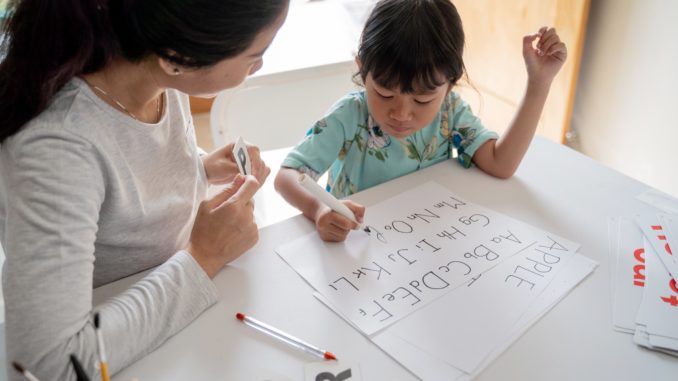
Does nagging, stress and arguing seem
like an all-too familiar routine when trying to get
your children to complete homework? It isn’t as simple as casting a spell, or waving
a magic wand, but getting
your children to complete their homework can be made easier.
Although we may class it as a burden especially when searching the house top-to-bottom for an ‘I think I completed it’ piece of work when in a rush to leave, there is a reason behind homework – it wasn’t intended to cast misery upon all in its wake. It is a great tool to reinforce information learnt throughout the day and allows more practice for information to lodge itself firmly in our grey matter. Homework is also a good way to enforce self-discipline, time management and organisation – skills which are learnt and built upon when physically practiced, and homework proves itself as an excellent medium
Create a homework routine which children will follow. Discuss possible times for homework to be completed after the school day with your child. Do not enforce and set a time yourself (although, do set an agreed cut-off point!), let them choose – it allows for the practice of organisation and time management, and also sets a basis
of independence of which to complete homework upon. Allow time for fun and rewarding activities once homework is completed. A homework routine will lead into habit once practiced – don’t slip out of it! Remove distractions from an agreed place to complete homework, such as the kitchen table or somewhere else quiet and comfortable. Replace homework responsibility from yourself to your child. It may seem hard, but it is crucial that your child learns that the consequences for not completing homework are determined by their own actions. This is a conscious approach for teaching your child how to be responsible. Providing that you are creating a positive and structured environment to complete homework and a defined plan of action, homework incomplete is a child’s responsibility; as are the consequences! Teachers are usually unimpressed with incomplete tasks and upon seeing their teacher’s reaction; your child will most probably complete their next homework assignment!
Encourage your child to let you know about their progress. No doubt they will inform you when they have completed a task to a high standard and have received praise for it from a teacher. This will show that homework and their progress is something you are interested in, yet also maintaining a sense of independence. Praise your children for completing tasks, but do not scald poor work – it’ll only lead to a shouting match! Remind your child of what was agreed and remind them of the good work they have done in the past and what they can do to do better next time. Ask them if they are struggling with any aspects of the homework set – homework highlights what our children are doing well at, and what they may be doing not so great at, in and
out of the classroom. They may need more hands-on help, whether it is from you, or guidance from a teacher on a more thorough basis. Get to the bottom of the problem, but never complete the homework yourself; give guidance, as eliminating your child from their own learning path can be more damaging than helpful.
